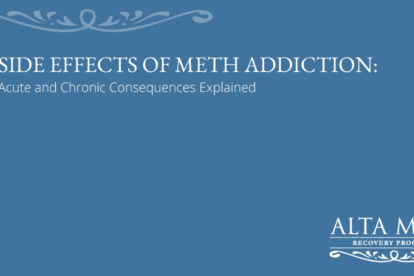
How Do I Stay Sober When All My Friends Drink?
After recovering from alcoholism and becoming sober, the goal shifts to maintaining recovery and avoiding relapse. Being around friends who drink is one of the challenges and triggers you might face in everyday life that could lead back to alcoholism and addiction. Nonetheless, it’s possible for you to maintain your sobriety while continuing friendships with people who drink.
Going back to normal life when in recovery is a challenge that can potentially lead to relapse. But being prepared to deal with triggers and temptations can make the process easier. Returning to a regular environment and spending time with friends who drink is one of the challenges you might face.
Developing strategies to handle friendships with those who drink can improve the odds of continuing to live successfully with your sobriety.
Decide Which Friendships to Keep
After making the decision to quit drinking and live a sober life, it’s generally not recommended to go back to the same lifestyle as before. Some changes need to be made to fit a new way of living. In some cases, this can mean changing your social group and spending time with different people.
Think about which friendships will be supportive of your sober life going forward. Consider which people are positive influences in your life. Then, identify relationships that might be a problem. Some friendships are based primarily on drinking and won’t continue to work during sobriety. Some people won’t respect your recovery and may attempt to bring you back to drinking with them. Not everyone may want to see you succeed with sobriety.
It’s important to surround yourself with those who will be supportive. Although it’s difficult, it will be better in the long run to let go of relationships that will bring you back to a life of substance abuse and all the problems that come with it.
Strategies for Success
Some of the friends you keep will be those who drink. Even if you try to stay away from alcohol for the most part, there will inevitably be occasions when friends are drinking, such as parties and weddings. Being ready with strategies to maintain addiction recovery can help:
- Communicate: Tell close friends that you are in recovery and don’t drink anymore. Explain that it can be difficult to avoid alcohol when everyone else is drinking, and ask for their support. Also, explain that you might need to remove yourself from the temptation sometimes and that they should not take it personally. A true friend should be supportive.
- Pretend: With acquaintances and work friends, holding a virgin drink that looks like an alcoholic beverage could prevent questioning. If someone offers a drink or a refill, try a simple answer such as, “Thanks, but I’m not drinking tonight.”
- Give It Time: After leaving a treatment program, it might be wise to take time to join a peer support group like AA and focus on recovery before spending time in situations involving alcohol. Wait until your recvoery is strong enough to handle the temptation without taking part. Also, it should get easier to be around drinking friends in time, or seek help if it does not.
- Mentally Prepare: Realizing that being around drinkers will likely feel awkward and difficult at first can make the process easier. Also, plan ahead what to do—such as the type of nonalcoholic drink to order—and how to react to comments and situations.
- Have a Buddy System: It’s helpful to have one or more supportive sober buddies you can call. When struggling to deal with temptations and pressure from friends, excuse yourself and call another sober alcoholic to gain support in handling the situation. You could also consider bringing a sober friend along for support at a gathering.
- Avoid Certain Situations: A treatment program should identify triggers that might lead to relapse. Base decisions about whether to spend time with drinking friends on these triggers. Aim to participate in sober and non-triggering activities and to decline invitations to activities that you associate with the need to drink.
We're Here to Help. Call Today!
866-922-1350Have a Sober Support System
Even if you remain friends with those who drink, it can help to have sober friends as a separate support system. You can join AA or other peer support programs, get a sponsor, or attend treatment alumni functions to establish a sober support system. Also, you can plan some sober activities to your drinking friends so your encounters don’t always involve alcohol. For example, try a nature activity, engage in an exercise class or sport, or join a class to learn a hobby.
A residential treatment program can help you develop tools and strategies for a successful life in recovery, including how to handle triggers and temptations. Also, an aftercare program and 12-step meetings can provide continuing support after alcohol rehab to make it easier to avoid relapse and maintain your recovery.






